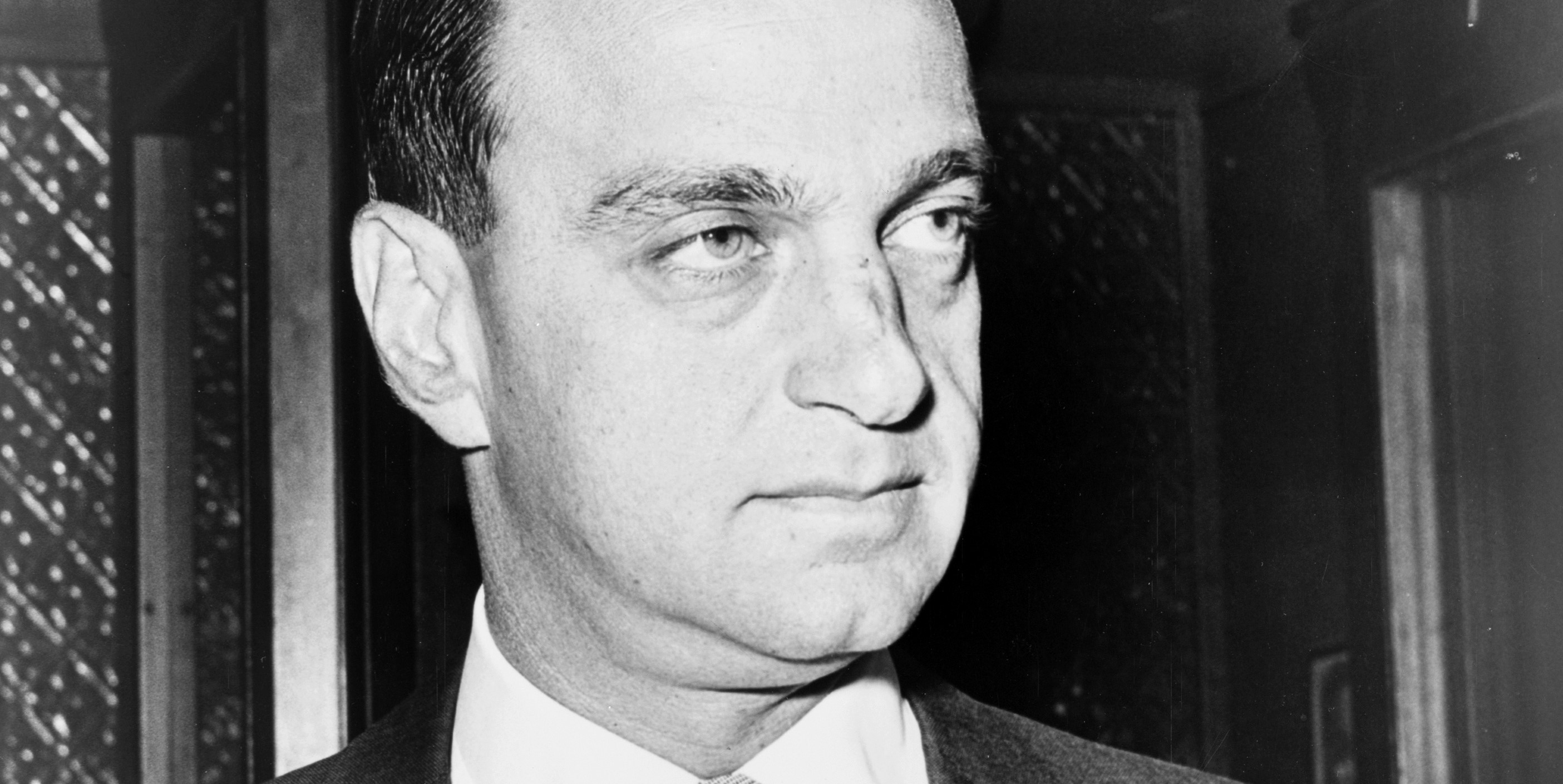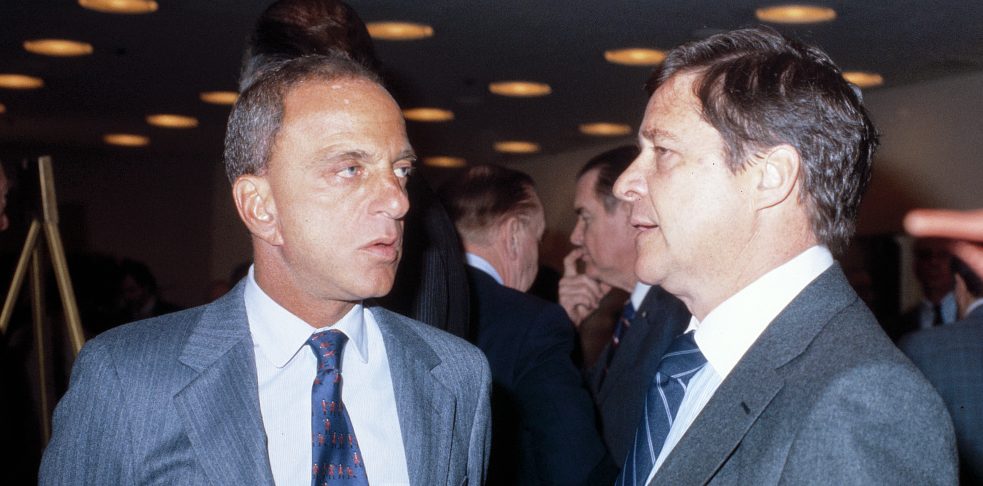Ali Abbasi’s biographical drama film ‘The Apprentice’ is the latest addition to the discourse concerning the sexuality of Roy Cohn. Over the years, historians and academicians have delved into the mysteries associated with the infamous lawyer, which includes his sexual orientation. During his lifetime, he faced questions concerning his sexuality, but the world did not accept his answers. He became part of the country’s queer history by rewriting it through his actions, which are often described as “homophobic” today. Nearly four decades after his passing due to AIDS, there is a consensus concerning his sexuality, even though it contradicts what he told the world when he was alive.
Roy Cohn Never Came Out as Gay Publicly
Roy Cohn had always insisted that he was not gay. Even when he faced questions concerning his sexuality on national television or wrote an autobiography, he implied that he was a heterosexual man. However, it is important to note that the lawyer interpreted queerness during a time when it was associated with femininity and several other stereotypes. He even said that he was aggressive and tough to establish that he was not gay, which clarifies what he thought being gay meant. However, people who were part of his circle or family have a different understanding concerning his sexual orientation.

“If [Cohn] had come out and said, ‘Look, I’m a homosexual. I have AIDS. We need to do something, not just for me, but for the community,’ he would have been a hero. But instead, he was a hypocrite,” one of Cohn’s cousins said while appearing in Matt Tyrnauer’s acclaimed documentary ‘Where’s My Roy Cohn?’ When the filmmaker spoke to Wallace Adams, one of the lawyer’s alleged boyfriends, the answer he received about the infamous figure’s sexual orientation was not different. “Even at the end, he [Cohn] refused to admit that he was gay, and he refused to admit that he had AIDS,” Adams told Tyrnauer, as per Politico.
In popular culture, Cohn is accepted as gay. Tony Kushner explored the lawyer’s sexuality deeply through ‘Angels in America,’ a Pulitzer Prize and Tony Award winner. Kushner’s fictionalized version of Cohn identifies himself as gay because he has sex with men but also denies being one since he has power, something gay people around him don’t have in his eyes. These portrayals of Cohn as a gay man, including Will Brill’s character in Showtime’s ‘Fellow Travelers,’ are rooted in the conviction or consensus that he was a queer man.
Several of Roy Cohn’s Policies and Legal Battles are Considered Homophobic
Similar to the consensus regarding Roy Cohn’s sexual orientation, he is often identified or described as a homophobe. The lawyer was a prominent figure behind the Lavender Scare, which reportedly resulted in the mass dismissal of gay and lesbian individuals from government service. They were deemed as communist sympathizers and threats to national security, which exposed them to widespread discrimination. Cohn’s partnership with Senator Joseph McCarthy to implement rules against queer people is the foundation of the understanding that he was a homophobe.

Cohn’s controversial actions weren’t limited to spearheading these mass dismissals. When the state of New York passed its first gay rights legislation, he confronted the law, stating that “homosexual teachers are a grave threat to our children.” He also allegedly used homophobic slurs such as “fags,” which affected his reputation considerably. David Marcus, a cousin of Cohn, described him as a gay man who prosecuted gay people. James Kirchick, the journalist who wrote ‘Secret City: The Hidden History of Gay Washington,’ went on to identify him as a victim and perpetrator of homophobia.
These interpretations of Cohn’s life, policies, and actions have paved the way for his portrayal as a homophobic man. He was intensely scrutinized for allegedly hunting down the gay community despite claims that he may have been a member of it. Cohn’s legacy is one of the darkest chapters of the country’s queer history, which continues to place him in the middle of the discourse concerning homophobia.
Read More: Russell Eldridge: Was He Roy Cohn’s Boyfriend? How Did He Die?


You must be logged in to post a comment.